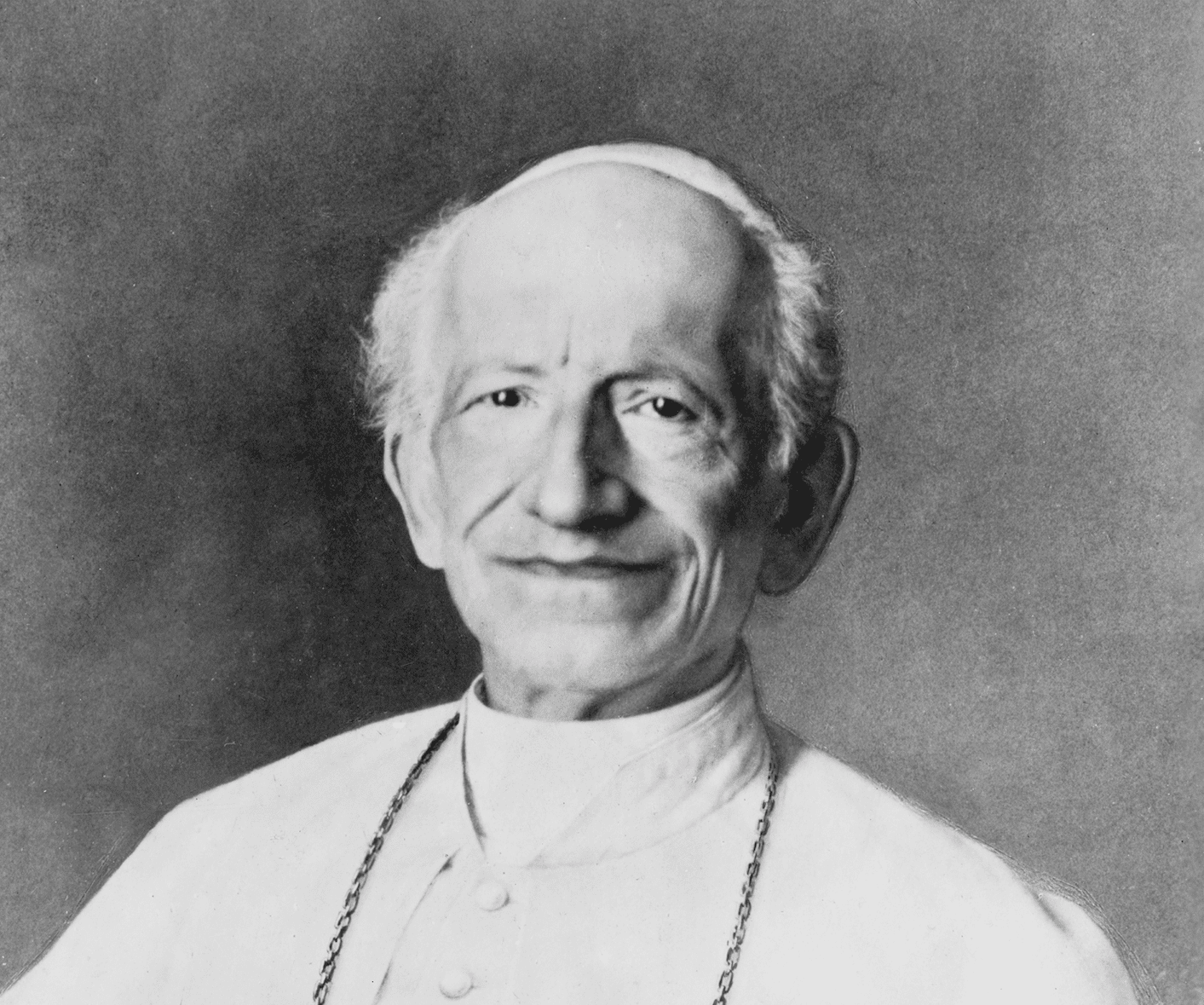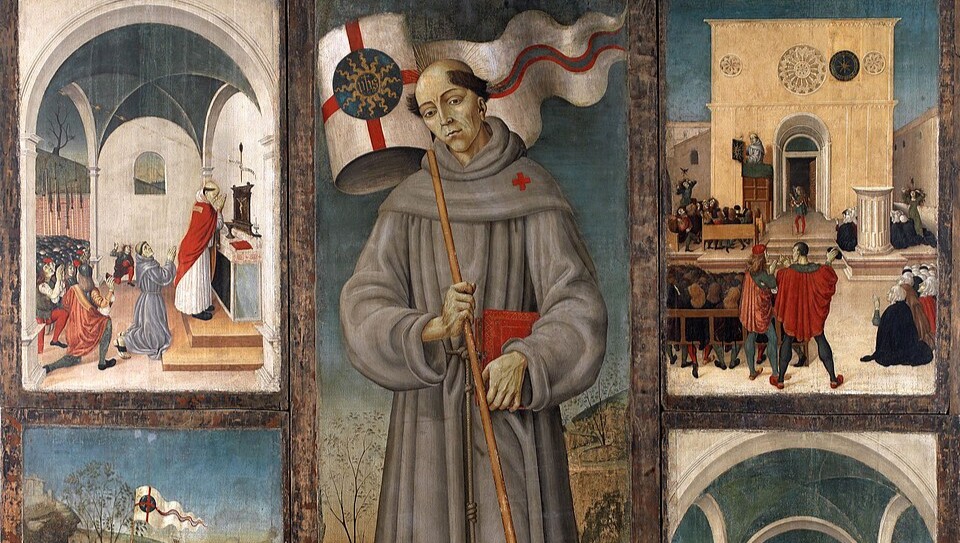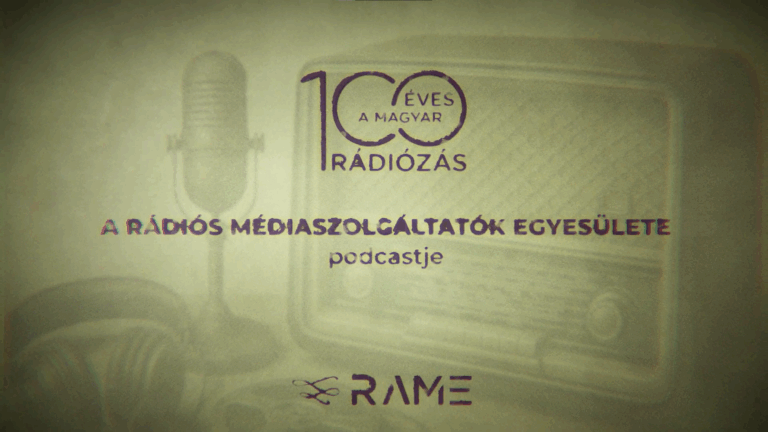There are several ongoing political debates about the status and nature of Christian democracy. One of them is related to PrimeMinister Viktor Orbán’s concept of Christian democracy in Hungary. After he was re-elected in 2018, Orbán highlighted that his government’s spiritual nature was Christian democratic, and he intended to build a democracy in this spirit, in opposition to liberal democracy.1 His government was committed to respecting and upholding basic values like respect for human dignity, the separation of powers, and respect for basic liberties, while it rejected globalist ideologies, and was determined to impede the interferences of supranational financial and political empires in the life of the country. These and other elements (e.g. concerning women’s equal rights, the fight against anti-Semitism, supporting families and full employment) together formulate a ‘Christian democratic worldview and system’, said Orbán.2 Over the past three years, Orbán and several other Fidesz/KDNP politicians have tried to re-introduce the term to the political and intellectual agenda.3 Naturally, Orbán’s conception and its Hungarian implementation have received several critical comments from domestic4 and international commentators and political scientists.5 European debates about the representation of ‘true’ Christian democratic principles have intensified over the past few months, since Fidesz quit the European People’s Party.6
Without investigating the theoretical validity and political relevance of these debates, Orbán was right in two general statements:7 first, Christian democracy has a strong European tradition; second, there is a significant ongoing intellectual-spiritual debate about illiberal democracy, liberal democracy, and Christian democracy. Accepting these two premises and arguing that there is a lack of historical knowledge regarding Christian democracy in the public sphere, this article wishes to introduce the reader to the forgotten origins of Christian democracy.
Historical background
The Reformation and the French Revolution left the Catholic Church shaken for centuries, and the church refused to follow modernizing tendencies (including rationalism, socialist ideas, and democratization)
As Gabriel Almond suggested, the ‘Catholic Church was deeply embedded in the social structure of the ancient regime. It resisted each step in the long and costly process of social, political, and spiritual emancipation.’8 In predominantly Catholic countries like Italy, France, Austria, Spain, and Portugal, the church retained every aspect of its medievalism, and was under the rule of authoritarian dynasties and aristocracies opposed to the extension of freedoms to the middle and lower classes. This had dramatic consequences: the (commercial, industrial, and professional) middle classes turned away from the church and became increasingly influenced by rationalism, sometimes deism or even atheism, while the working classes, to whom the high ecclesiastical circles had always turned a deaf ear, showed ever more overt hostility towards the church.9
Until the end of the nineteenth century, the church supplied no unified and forceful reaction to the above-mentioned problems. At last, Rerum Novarum, issued in 1891, marked a turning point. However, from around the middle of the nineteenth century, there were some priests, bishops, or laymen who tried to provide answers to these vital social and political questions. In the following pages, we will invoke two influential Catholic figures, Lamennais and Ketteler, and their respective ideas. We will then present the relevant Papal tradition (including the pontificate of Leo XIII, Pius X, and Benedict XV) from which Christian democracy originated.
Non-papal Catholic tradition – Lamennais and Ketteler
Félicité de Lamennais (1782–1854)
In the French-speaking territories, forceful responses were given to the ideas of the Enlightenment and the French Revolution by, for instance, Joseph de Maistre, François- René de Chateaubriand, or Louis de Bonald. Although these authors were significant representatives of the Catholic revival, the ideas of a slightly younger and probably less well-known personality, Hugues FélicitéRobert de Lamennais, exerted a more decisive influence on liberal Christianity, Christian socialism, and—last, but not least—Christian democracy.
Lamennais was born in 1782 in Brittany, and although it is usually stated that he lost his faith at a young age and became a rationalist, from around his early twenties he returned to the church and began to study theological questions. In 1816, he was ordained a priest. In his first significant writings, Réflexions (1808) and Tradition (1814), he condemned Gallicanism, which sought to restrict papal authority in France. His ultramontanist views provoked a violent reaction from the Napoleonic state authorities. In 1817, Lamennais wrote the first of four volumes of his Essai sur l’indifférence en matière de religion (Essay on Indifference in Matters of Religion) which earned him notoriety in Europe. In these writings Lamennais insisted on the necessity of religion, supported the educational privileges of the church, and attempted to contribute to the revival of the Catholic faith amid the indifference of his era.
Approaching the revolutionary year of 1830, Lamennais became an advocate of freedom, democracy, and the importance of organizations, arguing that ‘salvation will come and can come only from the really Catholic party, when it will organize itself’.10 Together with his disciples, he launched L’Avenir (The Future), which is generally considered the first modern Catholic newspaper. In its columns, Lamennais began to promote the freedom of education, freedom of the press, freedom of association, and freedom of worship. However, as Nyirkos11 emphasizes, Lamennais came suspiciously close to revolutionary rhetoric, and began to articulate mundane claims: universal suffrage and the abolition of governmental centralization. He attacked the monarchy, promoted liberal views, and called for democratic change.
While Lamennais (and his disciples) did not intend to distance themselves from Catholic teachings and did not consider their demands controversial, conservative French clerics called for the condemnation of their ideas. In these times the church was suspicious of the pursuits of influential lay Catholics and obstructed any attempt at autonomous Catholic political activity, as in Lamennais’s case.12 In 1832, Pope Gregory XVI condemned religious pluralism—without mentioning Lamennais—in his first encyclical, entitled Mirari vos. Lamennais wanted to remain within the fold of the church, but his Paroles d’un croyant (Words of a Believer) published in 1834 attacked the papacy and European monarchs. The Pope responded by condemning his teachings explicitly in the encyclical Singulari Nos (its subtitle was On the Errors of Lamennais). In his late writings, Lamennais posed the question of authority, and instead of God, church, and state, he found its source in the collective tradition of humanity.13
When Lamennais died in 1854 in Paris, his principal ideas were already known across Europe. In 1830, Belgian Catholictraditionalists, who supported the Belgian Revolution in the hope of fully living their Catholic faith through the liberties of the new Constitution were ‘deeply inspired by the thought of Félicité de Lamennais’.14 The influence of Lamennais’s ideas was enormous not only in his life, but in later Catholic political thought as well; he is viewed as one of the first representatives of Christian socialist and Christian democratic ideas. The Konrad- Adenauer-Stiftung’s handbook on Christian democracy published in 2011 still refers to Lamennais’s significance when it writes that ‘his main achievement was the early recognition of the increasingly important role of the people as political actors and the realization that the social question would be the main issue with regards to the socio-political order of the 19th century’.15
Wilhelm Emmanuel von Ketteler (1811–1877)
The German-speaking territories were not exempt from the political and religious conflicts of the nineteenth century, which were mainly brought about by the socio-economic and political crises of the era. A Christian socialist then Christian democratic movement led by politicians, churchmen, and philosophers began to emerge in the second half of the century, and one of its initiators was Wilhelm Emmanuel von Ketteler.
Ketteler was born in 1811 in Münster, the sixth child of a noble family. He was first educated by the Jesuits, then studied law, but in 1844, he was ordained a Catholic priest and in 1850—partly on the advice of Pope Pius XI—was made Bishop of Mainz. From the beginning of his priesthood, Ketteler was committed to the cause of the poor. Throughout his life, he founded several institutions that served the lowest social classes: for instance, he established a hospital in Beckum in 1848, which he named after Saint Elisabeth. Three years later he helped to establish the Congregation of Divine Providence for women who intended to spend their lives in the service of God. The Sisters played a role as educators as well. Both institutions are still in operation, as are other religious-educational and political associations which Ketteler later founded.
Ketteler was not just a churchman who was open to ‘the social question’ but a notable figure in German politics as well. He was elected to the Frankfurt National Assembly in 1848. The laws passed in December guaranteed civil liberties but did not touch upon social questions. Therefore, the Catholic representatives formed a factional union which referred to itself as the ‘Catholic Club’ and managed to ensure that a general provision regarding ecclesiastical liberties was added to the Imperial Constitution.16 In 1848–1849, Ketteler was present at the first Katholikentag as well, where he gave a highly persuasive speech about societal poverty.
In 1849, Ketteler organized the first Catholic workers’ union, which earned him the name Arbeiterbischof. In his book entitled Die Arbeiterfrage und das Christentum (The Labour Question and Christianity), published in 1864, Ketteler urged Catholics to form Christian unions under church leadership, to act as a counterweight to the social democrats and liberals. Relying on Lassale’s ideas and the principles of the Christian faith, he envisioned associations of producers (Produktiv-Assoziationen) which would also include employers. In his speeches, he emphasized the necessity of wage increases, a reduction in working hours, the securing of paid holidays, the prohibition of child labour and the employment of young mothers in factories. Thus he urged the active presence of the church in spheres that had always been under the state’s control.17
In 1862, Ketteler wrote his Freiheit, Autorität und Kirche (Freedom, Authority, and the Church) in which he outlined the theoretical foundations of the attitude of Catholics towards state authority, and argued for the separation of church and state. To be more accurate, Ketteler did not want an entirely separate church and state (that, for him, was inconceivable) but he did want the church to be free from state interference.18 Ketteler defended constitutionalism and wanted to make use of political and communicational channels in the interests of Catholics. He adopted a liberal legal approach and rejected absolutism and the police state; he wanted to live in a ‘state based on the rule of law’ and ‘self-government’.19 Still, Ketteler was not a supporter of liberalism or liberal individualism; in contrast to civil liberties (which were marked by the sins of individualism), he supported the old, corporate conception of liberty and favoured constitutional changes in order to guarantee the freedom of the church.20
The conflict between the church and the state escalated into a Kulturkampf which took place in the 1870s between Bismarck and the representatives and supporters of the Catholic Church
Catholics became a minority in the Protestant-dominated German Empire, and Bismarck aspired to reduce the power of their church. Ketteler joined the ‘cultural struggle’ when the Catholic members founded the Zentrum Party in the Assembly. Opposed to the Chancellor’s idea of a centralized political system, the Zentrum Party favoured federal structure with greater independence for the individual states. The original reason of the conflict was the unsettled relationship between the church and the state: Bismarck wanted a state monopoly on education, while the Zentrum Party, the Catholic Church, and the Catholic lay organizations demanded guaranteed independence for Catholic Church institutions. In other words, they wanted the educational system to remain unchanged. Although Bismarck had the power to expel the Jesuit order, ban sermons and processions, and suspend church legislation on marriage, the struggle strengthened the political role of Catholicism and the position of the Zentrum Party in Germany.21
Ketteler accepted the authority of the Papal State and was ready to defend its sovereignty, but he was also highly attentive to the social problems of the masses. He was a skilful organizer who managed to build organizations and institutions that served the cause of the church in both religious and political affairs. His speeches, pamphlets, and pastoral letters made him well-known even in non-Catholic circles.22 He died in 1877, but—as in the case of Lamennais—his influence remained far-reaching. The ideas of this prominent representative of early Christian socialist thought were integrated into the first papal encyclical devoted to the workers’ cause, Rerum Novarum. Moreover, his social and political activism, which resulted in several institutions and organizations, showed the important role mass associations could play; this idea was later crucial for Christian democracy.
The papal tradition (Popes Leo XIII, Pius X, and Benedict)
Pope Leo XIII and Christian Democracy
The long papal tradition entered the modern age under the pontificate of Pope Leo XIII. Leo XIII was influenced by the conservatism of Pius IX; he agreed with his predecessor on the principle of non expedit which—mainly rooted in the practical and theoretical conflicts between ‘unified’ Italy and the Vatican—forbade (Italian) Catholics to take part in elections. Yet, he is considered the ‘first modern pope’ since he recognized the importance of the greatest problem of the century, the social question. This resulted in the publication of Rerum Novarum in 1891, the first papal encyclical on labour issues. With this, he inaugurated a series of documents regarding Christian social teaching, ‘on which the Christian (Christiansocialist and Christian democratic) parties of the twentieth century would build their political doctrine, or at least consider it their theoretical-moral basis’.23 The encyclical marked a fundamental turning point in the ecclesiastical approach to the issue of labour. Among its main proposals was the creation of professional associations of employers and employees in a corporate manner. Thus, the pope explicitly endorsed and encouraged the formation of trade unions in the service of the political mobilization of Catholics.
It also created an opportunity for liberal Catholics to articulate the need for a democratic republic, as did the Le Sillon movement founded in France by Marc Sangnier. At the same time, in Italy, Romolo Murri, a Catholic priest from the Opera dei Congressi, founded by Pius IX, set about organizing the Christian democratic movement. This led to a paradox, since ‘when the church became the engine of political subculture, its official programme turned away from politics’.24 Thus, the call for the formation of workers’ unions, proclaimed by Rerum Novarum, brought with it the politicization of organizations, even though the encyclical did not explicitly encourage this process. Recognizing this, ten years after Rerum Novarum, Leo XIII published Graves de communi re, which was a critique of Murri’s organized Christian democracy. In the encyclical, the Pope undertook to define Christian democracy, emphasizing that Christian democracy had nothing to do with social democracy. Moreover, Leo XIII went so far as to call it a ‘crime’ to attach political significance to the name Christian democracy, as it signifies a charitable act done primarily for the benefit of the people:
‘Moreover, it would be a crime to distort this name of Christian Democracy to politics, for, although democracy, both in its philological and philosophical significations, implies popular government, yet in its present application it must be employed without any political significance, so as to mean nothing else than this beneficent Christian action in behalf of the people.’25
The encyclical also draws attention to the fact that the Christian democratic movement ‘must remain absolutely free from the passions and vicissitudes of the parties’.26 The papal definition states that Christian democracy seeks to create a better life for the masses while also protecting private property, as ‘it must safeguard the various distinctions and degrees which are indispensable in every well-ordered commonwealth’.27 Thus, according to the papal definition, Christian democracy ‘strives for the lower strata of the people but cannot forget the interests of the higher social classes, nor does it oppose a legitimate power in order to achieve its goals’.28
Pius X and the Dissolution of the Opera dei Congressi
After the death of the ‘first modern pope’, Giuseppe Melechior Sarto, a former patriarch of Venice, was elected to Saint Peter’s throne under the name of Pius X in 1903. In the same year, the encyclical Graves de communi was published, in which the pope defined and strengthened the concept of Christian democracy. The background of this statement stemmed from a significant split: on the Opera dei Congressi, Romolo Murri (and the younger members in general) anticipated the formation of a political party, while Pius X and his supporters were against it; as the Pope suggested, ‘[m]oreover, Christian Democracy must have nothing to do with politics, and never be able to serve political ends or parties’.29 The conflict continued with the papal dissolution of the Opera dei Congressi, and the excommunication of Murri after he joined the Lega Democratica Nazionale, the forerunner of the Italian Christian Democratic Party.30 These measures were intended to suppress Christian democracy as an independent political programme.31
Nevertheless, as some church historians put it, ‘[Pius X] did not condemn participation in political life without distinction, since the principles of Christian ethics could be followed in this area as well’,32 but opposed ‘only the establishment of a “Catholic party”’.33 These considerations seem to be supported by the fact that in its encyclical Il fermo proposito (Definite Resolution) he maintains, but at the same time relaxes the principle of non expedit and ‘in particular cases a dispensation from the law be granted especially’34 after ‘a duty on all Catholics to prepare themselves prudently and seriously for political life in case they may be called to it’.35 This easing contributed to the fact that one of the three organizations that emerged after the dissolution of the Opera de Congressi was the Unione Elettorale Cattolica Italiana, which entered Parliament in 1913 following the so-called Gentiloni Pact. In short, Pius X—although partly indirectly— contributed to the participation of Catholics in politics.
Pope Benedict XV and the Partito Popolare Italiano
One month after the outbreak of the First World War, Pius X died unexpectedly as a result of the spiritual pain caused by the outbreak of the conflagration.36 His successor was Benedict XV who, partly building on his ecclesiastical diplomatic experience, constantly tried to promote reconciliation during the war. In 1917, he presented a large-scale peace plan to the belligerent parties, but his efforts failed. Despite unsuccessful attempts at peace during the First World War, Benedict XV managed to strengthen the international position of the Holy See.37 After the war, the pontificate of Benedict XV played an important role in the birth of the Partito Popolare Italiano (PPI). First, he suspended the principle of the non expedit.38 Second, through his Secretary of State, Cardinal Pietro Gasparri, he supported the formation of the new party.
The Hungarian historian László Zsigmond illustrates the significance of this new standpoint as follows:
‘This meant not only the complete abandonment of the principle and practice of non expedit, but also the licensing of the Christian Democratic movement (initiated by Murri) condemned at the turn of the century and thus liquidated. The PPI programme bore all the marks which had once been declared incompatible with the fundamental tenets of the church.’39
Yet, the leader of this movement was the Catholic priest Luigi Sturzo, who laid the foundations for a Catholic-inspired but non-religious democratic party as early as Christmas 1905, after the promulgation of Pope Pius X’s encyclical Il fermo proposito.40Sturzo, adhering to the principles formulated in 1905, called the party neither Christian nor Catholic. He ‘intended to dispel the suspicion that the party represented the Vatican, which wanted to remain politically neutral’,41 although the press wrote that Struzo’s party was created on the Vatican’s orders. This falsification of the facts has been uncovered by the work of a Jesuit monk, Giovanni Sale, in which he points out that although Benedict XV never publicly expressed his support for the PPI, Sturzo ‘kept a good memory and gratitude throughout his life for the brave “little pope” who did not hinder or in any way encourage the birth of the first political party of Italian Catholics’.42 Still, the official formation of the PPI took place only in January 1919.
Conclusion
These initial papal and non-papal acts were decisive but not sufficient in themselves for a flourishing Christian democratic movement. At least three additional steps had to be taken. First, the constant renewal of old principles was necessary, as happened for instance in the Quadragesimo anno which encapsulated the social teachings of the church on the fortieth anniversary of Rerum Novarum. Second, emblematic and original figures (e.g. the French philosopher Jacques Maritain) published their novel ideas and new concepts (e.g. the principle of subsidiarity) which emerged and crystallized in the first part of the twentieth century. Third, the proliferation of Christian socialist and democratic ideas began.
For example in Hungary, similarly to other European countries, the social and political activism of Catholics began mainly as a result of Rerum Novarum
This evolution was facilitated by Leo XIII’s encyclical Constanti Hungarorum which he sent to the Hungarian bishops in 1893.43 Just as in Italy, the local Catholic associations were the basis of the later Catholic People’s Party (Katolikus Néppárt) in Hungary.44 The fact that Christian socialist and Christian democratic tendencies simultaneously appeared in the nascent political Catholicism is another similarity between the Hungarian and the European scenes. The example of Vid Mihelics can be cited here, who—beside Rerum Novarum—examines Quadragesimo anno in his book titled Keresztényszocializmus (Christian Socialism) in 1933, but later, in 1944, joined the Christian Democratic People’s Party (Kereszténydemokrata Néppárt). This— generally forgotten—Christian democratic legacy was unfortunately swept away by the emergence of the communist regime in Hungary in 1947. Naturally, other components of the Christian democratic tradition could have been emphasized in this article, like the Protestant branch represented by, for instance, Abraham Kuyper’s thought. Although—as mentioned above—Christian democracy was tightly linked to the Catholic Church, in the Netherlands, Kuyper’s perspective provided a Protestant view for Christian democracy. The Dutch prime minister and Neo-Calvinist theologian firmly believed that Calvinism was not just a denominational and ecclesiastical movement but that its principles should be applied in all walks of life, including politics. Yet, opposed to the Catholics’ ‘church-based’ conception, Kuyper found the source of inspiration and knowledge in the history of Calvinism.45 This plurality also suggests that our short overview is not an all-encompassing review of the ‘full’ tradition. Still, a comprehensive study of the Christian democratic traditions cannot omit such historical figures as Lamennais, Ketteler, and Popes Leo XIII, Pius X, and Benedict XV. As a final note, the ambition of this article—namely to present the forgotten origins of Christian democracy—has led us to the conclusion that several theoretical and practical developments had been achieved as early as the beginning of the twentieth century, enabling the formation of Christian democratic politics. The birth of Christian democracy provided an opportunity for Christians to find their place in modern democratic states.
NOTES
1 ‘Orbán Viktor a Kossuth Rádió “180 perc” című műsorában’ (2018) (Viktor Orbán on the programme ‘180 minutes’ of Radio Kossuth), https:// miniszterelnok.hu/orban-viktor-a-kossuth-radio-180- perc-cimu-musoraban-26/, accessed 14 July 2021.
2 ‘Orbán Viktor a Kossuth Rádió “180 perc” című műsorában’.
3 E.g.: ‘Speech by Viktor Orbán at the Atreju 2019 Event Held by the Brothers of Italy Party (FdI)’,
About Hungary (2019), http://abouthungary.hu/ speeches-and-remarks/speech-by-viktor-orban-at- the-atreju-2019-event-held-by-the-brothers-of-italy- party-fdi/, accessed 14 July 2021; Zoltán Kovács, ‘PM Orbán in Rome: Liberalism Is Over; It’s Time for Christian Democracy’, About Hungary (2020), http:// abouthungary.hu/blog/pm-orban-in-rome-liberalism- is-over-its-time-for-christian-democracy/2020, accessed 14 July 2021; György Hölvényi, ‘A kereszténydemokrácia lehetőségei a 21. században’ (Perspectives of Christian Democracy in the 21st Century), Kommentár, 1 (2021), 83–92.
4 E.g.: Csaba László, ‘Az új magyar kereszténydemokrácia nem más, mint az illiberális demokrácia új csomagolása’ (The New Hungarian Christian Democracy Is but a New Guise of Illiberal Democracy), Mozgó Világ, 44/7–8 (2018), http://archive. ceu.hu/sites/default/files/publications/mozgo-2018- julius.pdf , accessed 14 July 2021; Zoltán Balázs, ‘Ez nem kereszténydemokrácia’ (This Is Not Christian Democracy), Válasz Online (2020), https://www. valaszonline.hu/2020/02/06/balazs-zoltan-podcast- konzervativ-keresztenydemokracia-zold-politikai- iranyzatok/, accessed 14 July 2021.
5 E.g.: Jan-Werner Müller, ‘“False Advertising”: Christian Democracy or Illiberal Democracy?’, Balkan Insight, (2020), https://balkaninsight.com/2020/02/03/ false-advertising-christian-democracy-or-illiberal- democracy/, accessed 14 July 2021.
6 ‘Hungary: Viktor Orban’s Ruling Fidesz Party Quits European People’s Party’, Deutsche Welle (2021), https://www.dw.com/en/hungary-viktor-orbans-ruling- fidesz-party-quits-european-peoples-party/a-56919987, accessed 14 July 2021.
7 ‘Orbán Viktor a Kossuth Rádió “180 perc” című műsorában’.
8 Gabriel Abraham Almond, ‘The Political Ideas of Christian Democracy’, The Journal of Politics, 10/4 (1948), 734–763.
9 Almond, ‘The Political Ideas of Christian Democracy’.
10 Quoted by Stathis N. Kalyvas, The Rise of Christian Democracy in Europe (Ithaca and London: Cornell University Press, 1996), 132.
11 Tamás Nyirkos, Kereszténység és konzervativizmus:
A francia ellenforradalom teológiája (Christianity and Conservatism: The Theology of the French Counter- revolution) (Budapest: ELTE BTK, 2011, PhD thesis).
12 Kalyvas, The Rise of Christian Democracy in Europe.
13 Nyirkos, Kereszténység és konzervativizmus: A francia ellenforradalom teológiája.
14 Marnix Beyen, ‘Multiple Democracies in One Country: Belgian Narratives of Democracy’, Journal of Modern European History, 17/2 (2019), 180.
15 Konrad-Adenauer-Stiftung, Christian Democracy: Principles and Policy-Making (Sankt Augustin/Berlin: Konrad-Adenauer-Stiftung e.V., 2011), 13.
16 Gábor Székely, ‘Kereszténydemokrácia Németországban’ (Christian Democracy in Germany), Múltunk 3 (2007), 202–236.
17 Székely, ‘Kereszténydemokrácia Németországban’, 211.
18 Diána Ibolya Fazekas, ‘Friedrich Wilhelm Emmanuel von Ketteler politikai és egyházpolitikai nézetei és tevékenysége az I. Vatikáni Zsinat és a Kulturkampf ideje alatt’ (The Political and Ecclesiastical Political Views and Activities of Friedrich Wilhelm Emmanuel von Ketteler at the Time of the First Vatican Council and the Kulturkampf), Egyháztörténeti Szemle, 13/3 (2012), 50–74.
19 Konrad-Adenauer-Stiftung, Christian Democracy: Principles and Policy-Making, 13–14.
20 Fazekas, ‘Friedrich Wilhelm Emmanuel von Ketteler politikai és egyházpolitikai nézetei és tevékenysége az I. Vatikáni Zsinat és a Kulturkampf ideje alatt’.
21 Konrad-Adenauer-Stiftung, Christian Democracy: Principles and Policy-Making, 14.
22 Fazekas, ‘Friedrich Wilhelm Emmanuel von Ketteler politikai és egyházpolitikai nézetei és tevékenysége az I. Vatikáni Zsinat és a Kulturkampf ideje alatt’.
23 Jenő Gergely, ‘A száz éves Rerum novarum’ (The Hundred Years Old Rerum Novarum), História, 13/5–6 (1991), 3. Cf. Hölvényi, ‘A kereszténydemokrácia lehetőségei a 21. században’.
24 Zsolt Enyedi, Politika a kereszt jegyében: Egy politikai szubkultúra természetrajza (Politics under the Aegis
of the Cross. The Nature of a Political Subculture) (Budapest: Osiris, 1998), 124.
25 Pope Leo XIII, Graves de Communi re, (1901), 7, http://www.vatican.va/content/leo-xiii/en/encyclicals/ documents/hf_l-xiii_enc_18011901_graves-de- communi-re.html, accessed 14 July 2021.
26 Pope Leo XIII, Graves de Communi re, 7.
27 Pope Leo XIII, Graves de Communi re, 6.
28 László Gájer, ‘XIII. Leó pápa és a demokrácia’ (Pope Leo XIII and Democracy), Magyar Sion, 11/2 (2017), 293.
29 Pope Pio X, Fin dalla Prima (1903), XIII, http://www. vatican.va/content/pius-x/it/motu_proprio/documents/ hf_p-x_motu-proprio_19031218_fin-dalla-prima.html, accessed 14 July 2021.
30 Katalin Botos and Máté Botos, ‘Az olasz politikai katolicizmus és XXIII. János pápa’ (Italian Political Catholicism and Pope John XXIII), Valóság, 4 (2015),53–63.
31 László Zsigmond, ‘A kereszténydemokrácia fogalma körüli vita politikai értelme’ (The Political Meaning of the Debate on the Concept of Christian Democracy),Vigilia, 1 (1972), 6–17.
32 József Török, Egyetemes egyháztörténelem II (Universal Ecclesiastical History II) (Budapest: Szent István Társulat, 1999), 247.
33 Török, Egyetemes egyháztörténelem II, 249.
34 Pope Pio X, Il fermo proposito (1905), 18, http://www. vatican.va/content/pius-x/en/encyclicals/documents/ hf_p-x_enc_11061905_il-fermo-proposito.html, accessed 14 July 2021.
35 Pope Pio X, Il fermo proposito, 19.
36 Török, Egyetemes egyháztörténelem II, 257.
37 Konrád Szántó, A Katolikus Egyház története
II (History of the Catholic Church II) (Budapest: Ecclesia, 1988).
38 Cf.: Botos and Botos, ‘Az olasz politikai katolicizmus és XXIII. János pápa’; Dinu Petrisor Surbaru, Benedetto XV, il papa della Grande Guerra (PhD thesis, 2013), https://villaaurora.it/wp-content/uploads/2020/11/lauTesiDinu-PetrisorSURUBARU. pdf, accessed 14 July 2021; Szántó, A Katolikus Egyház története II; Zsigmond, ‘A kereszténydemokráciafogalma körüli vita politikai értelme’.
39 Zsigmond, ‘A kereszténydemokrácia fogalma körüli vita politikai értelme’, 13.
40 Tiziana di Maio, ‘Between the Crisis of the Liberal State, Fascism and a Democratic Perspective: The Popular Party in Italy’, in Wolfram Kaiser and HelmutWohnout, eds, Political Catholicism in Europe 1918–45 (London–New York: Routledge, 2005), 112.
41 di Maio, ‘Between the Crisis of the Liberal State, Fascism and a Democratic Perspective: The Popular Party in Italy’, 112.
42 Giovanni Sale, Popolari e destra cattolica al tempo di Benedetto XV (Milano: Jaca Book, 2006), 31.
43 Jenő Gergely, A keresztényszocializmus Magyarországon 1903–1923 (Christian Socialism in Hungary 1903–1923) (Budapest: Akadémiai Kiadó, 1977).
44 Enyedi, Politika a kereszt jegyében: Egy politikai szubkultúra természetrajza.
45 Abraham Kuyper, The L. P. Stone Lectures for 1898–1899. Calvinism–Six Lectures Delivered in the Theological Seminary of Princeton (Leopold Classic Library, 2015).








